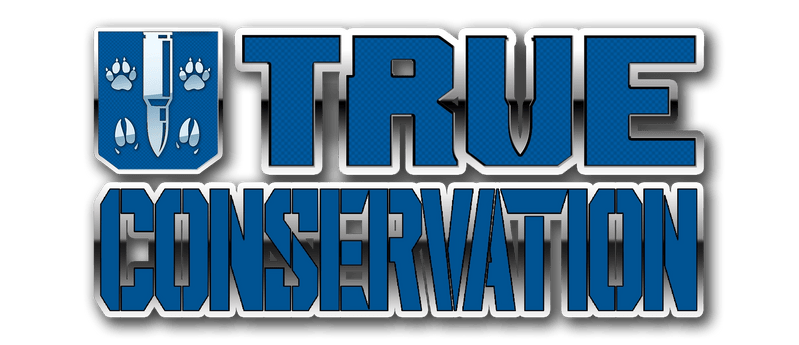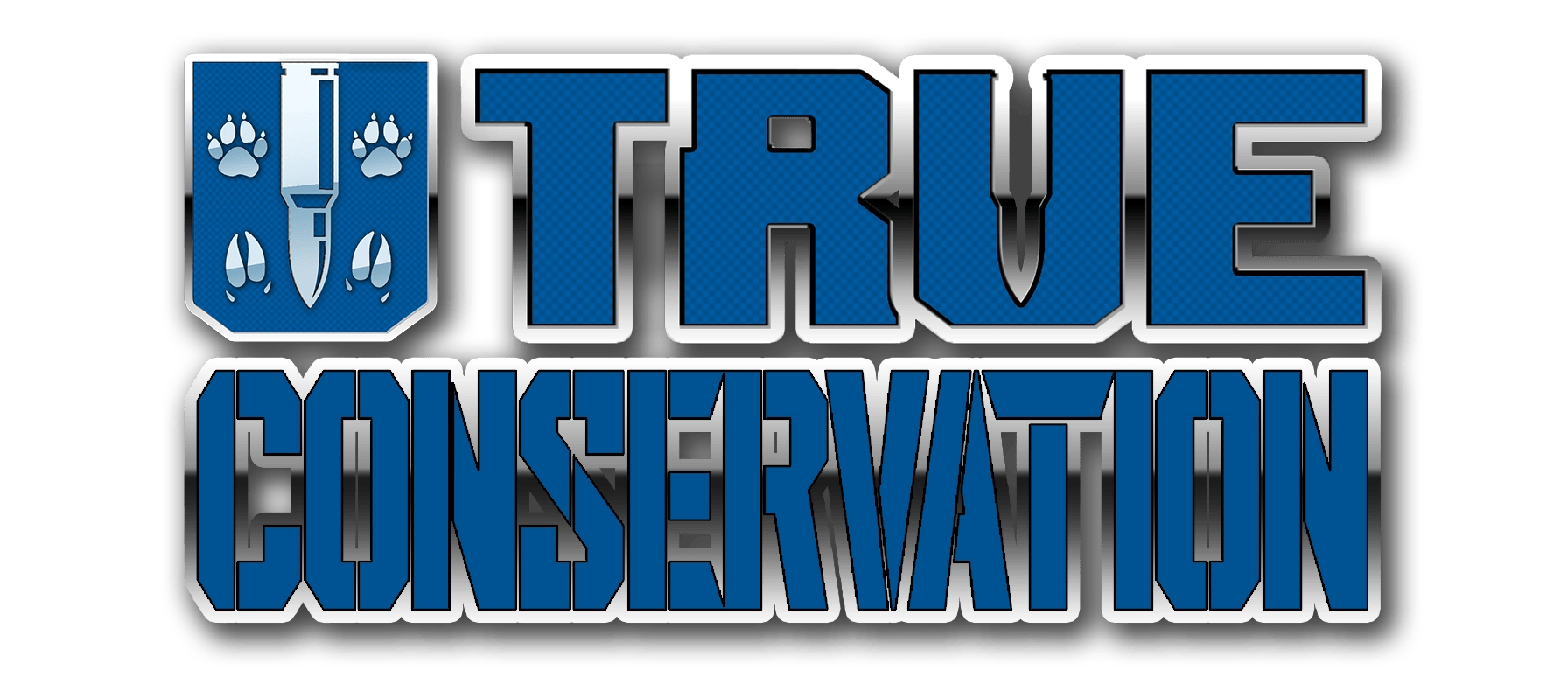About True Conservation
Protecting Native Wildlife and Their Habitat
Established in 2022, True Conservation is a non-profit 501(c)(3) organization committed to restoring order in the ecosystem and protecting native wildlife and their habitats. Our main objective is to motivate hunters to intensify their efforts in hog hunting and bring the invasive species population down to a manageable number. Invasive species like feral hogs have a catastrophic effect on native wildlife and the environment they call home.

Impacts on Farmers and Ranchers
Not only is wildlife significantly affected by feral hogs, but farmers and ranchers are also devastated by the damages and costs that hogs inflict on their land and livestock. This directly affects everyone who depends on these vital resources. As hunters, farmers, ranchers, and conservationists, we have all had our fair share of encounters with feral hogs and the destruction they leave behind.
 Feral swine cause extensive damage to various field crops, including sugar cane, corn, grain sorghum, soybeans, wheat, oats, peanuts, and rice. They also damage vegetable and fruit crops such as lettuce, spinach, melons, and pumpkins. Their destructive rooting, trampling, and wallowing behaviors lead to significant losses for farmers.
Feral swine cause extensive damage to various field crops, including sugar cane, corn, grain sorghum, soybeans, wheat, oats, peanuts, and rice. They also damage vegetable and fruit crops such as lettuce, spinach, melons, and pumpkins. Their destructive rooting, trampling, and wallowing behaviors lead to significant losses for farmers.
 Feral swine can destroy pasture grasses by killing desired plant species and encouraging the growth of undesired weed species. Their rooting behavior turns over sod and pasture, exposing plant roots and invertebrates, and ultimately ruining the pasture. The resulting uneven terrain can make it difficult or even impossible for farmers to drive tractors over the field to harvest.
Feral swine can destroy pasture grasses by killing desired plant species and encouraging the growth of undesired weed species. Their rooting behavior turns over sod and pasture, exposing plant roots and invertebrates, and ultimately ruining the pasture. The resulting uneven terrain can make it difficult or even impossible for farmers to drive tractors over the field to harvest.
 Though feral swine are commonly associated with rural areas, they increasingly cause damage to residential properties, golf courses, cemeteries, beaches, and parks. Additionally, they can cause significant damage when involved in vehicle collisions with cars, motorcycles, and aircraft.
Though feral swine are commonly associated with rural areas, they increasingly cause damage to residential properties, golf courses, cemeteries, beaches, and parks. Additionally, they can cause significant damage when involved in vehicle collisions with cars, motorcycles, and aircraft.
Feral swine can transmit pathogens to livestock, resulting in financial losses for livestock producers due to decreased productivity, veterinary costs, or even mortality. They can kill young calves, lambs, and vulnerable adult animals during the birthing process. Moreover, feral swine can consume or contaminate livestock feed, mineral supplements, and water sources.
Feral swine are known carriers of at least 30 viral and bacterial diseases and nearly 40 parasites that can be transmitted to humans, pets, livestock, and other wildlife.
Feral swine compete with native wildlife for essential resources such as food, habitat, and water.
Large groups of feral swine can deposit substantial amounts of fecal material in concentrated areas, contaminating water sources and increasing disease risks for humans, wildlife, and livestock.
Feral swine contribute to the spread of invasive plant species. Many invasive plants prefer areas of recent disturbance, such as wallows or rooted areas, and feral swine can spread seeds on their fur or in their feces.
Feral swine consumption of mast not only depletes food sources for native wildlife like deer and turkey, but it can also alter forest composition by decreasing the number of large seed-producing trees.
 Feral swine prey directly on the nests, eggs, and young of native ground-nesting birds and reptiles, including threatened or endangered species. They can also impact game birds such as wild turkeys, grouse, and quail. Feral swine have been documented killing and eating deer fawns and actively hunting small mammals, frogs, lizards, and snakes.
Feral swine prey directly on the nests, eggs, and young of native ground-nesting birds and reptiles, including threatened or endangered species. They can also impact game birds such as wild turkeys, grouse, and quail. Feral swine have been documented killing and eating deer fawns and actively hunting small mammals, frogs, lizards, and snakes.
The Challenge of Hunting Feral Hogs
Hunting feral hogs can be a challenging and time-consuming task, requiring great patience and persistence. At True Conservation, our goal is to give hunters the motivation to maintain their efforts in the “War on Hogs” and contribute to the cause of “conservation through eradication.”
A Necessary Approach
As morbid as it may sound, the feral hog problem cannot be relocated or dealt with delicately. Feral hogs are an invasive species with a drastic effect on native wildlife, livestock, landscape, and freshwater sources. They must be hunted in every legal way possible and as consistently as possible.
Our Mission
Our mission at True Conservation is not to wipe a species off the face of the earth, but to preserve the native wildlife and protect our land. By engaging hunters and the wider community in our efforts, we aim to restore balance to the ecosystem and ensure a thriving environment for future generations.
Mission Statement:
“True Conservation’s mission is to protect natural resources by encouraging and incentivizing sportsmen to work toward the eradication of invasive animal species that cause damage to farmland, ranchland, and nature preserves”
Our Board

Dell Hallmark
President
Dell grew up hunting in South Texas during the 1980s and has spent countless hours in the outdoors, engaged in hunting and observation. Over the years, he witnessed the exponential growth in the number of wild hogs on and around his land, while also noticing a decline in other wildlife species. Many morning conversations took place around the coffee pot at True Ballistics, discussing the wild hog problem. These discussions eventually led Dell and his colleague, Charlie Lobner, to the realization that, to address the massive issue of wild hogs, it would be necessary to enlist and incentivize the world’s largest army – the American Sportsman.
Thus, Dell and Charlie co-founded The True Hog Hunters Tournament, which later evolved into True Conservation. Given the severity of the problem, they are committed to a lifelong fight against this invasive species.
Charlie Lobner
Vice President
Charlie Lobner grew up hunting hogs alongside his father and older brother. His grandfather farmed their 186-acre tract of riverfront property throughout his childhood, so wild hogs were a familiar sight from a very young age. Even though hogs were common over two decades ago, Charlie has witnessed the population increase dramatically firsthand and has seen the impact they can have on a small farm in a short period of time.
Frequenting the riverbed of the San Antonio River, Charlie has learned a lot about wild hogs and has become determined to help reduce the population to a manageable number. His goal is to assist farmers and ranchers, like his grandfather, who have experienced significant losses due to feral hogs. Charlie is proud to be a part of True Conservation as it evolves from an idea discussed around the coffee pot to an organization that provides support to everyone affected by feral hogs.
Although Charlie has always enjoyed the sport of hog hunting, he understands that the population is currently at a dangerously high level. As a result, he is committed to doing everything in his power to alleviate the negative effects of feral hogs on people, wildlife, and the environment.

Leo Janysek
Board Member
Leo’s father worked as a cattleman, and Leo dedicated much of his life to assisting with the family’s cattle operation. In addition to hunting small game, the Janysek family also hunted predators like coyotes to safeguard their herds. As the feral hog population started to expand a couple of decades ago, Leo and his family shifted their focus to controlling the invasive species through trapping.
When approached with the opportunity to serve on the board of True Conservation, Leo eagerly accepted, demonstrating his commitment to addressing the challenges posed by feral hogs and supporting the organization’s mission. By joining True Conservation, Leo brings his extensive experience in wildlife management and his understanding of the agricultural sector to the table. He is determined to contribute to the development of effective strategies to protect farmers, ranchers, and native ecosystems from the detrimental impacts of feral hogs. Through his involvement, Leo hopes to make a lasting difference in preserving the environment and wildlife for future generations.


